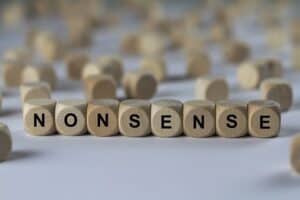
“Writing is thinking. To write well is to think clearly. That’s why it’s so hard.” Wise words from American popular historian and two-time Pulitzer Prize winner David McCullough. The challenge of marshalling your thoughts into lucid text will be familiar to anyone who wrangles with the written word for a living. Translators face the additional mission of having to second guess what the original author might have intended. Even if the meaning is not in doubt, a recent proofreading task was a salutary reminder of just how difficult it is to create text that reads smoothly. The less the reader is aware of the written medium as a barrier to processing the content, the better. Good writing should be imperceptible.
The relevant project consisted of several passages that had been cobbled together by a non-native speaker from existing partial translations for a client. It read like something that had been put through a mangle, with sentences starting coherently before trailing off into non sequiturs. The danger of a task like this is that it is almost impossible to judge how much work will be involved simply by scanning the text. It is only once you are immersed in untangling and correcting the text that the true scale becomes apparent. Occasionally a client will agree to pay an hourly rate to reflect the amount of time invested; but a fixed fee agreed in advance is more common and needs to be carefully considered given the potential for these projects to eat up more time than you could ever have anticipated.
My preferred approach for proofreading is akin to a multi-stage sifting process. I switch ‘track changes’ on in Word and rattle through the document, correcting egregious grammatical errors in a fairly swift first pass. Then I work through the text again, this time focusing on rephrasing and making the text sound like something a native speaker might have written. Finally, I switch to a document view where only the final text can be seen (no markup) and read through the entire piece again to catch any remaining awkward or inelegant phrasing.
It was in the midst of this time-consuming improvement process, that I was reminded of the origins of the Plain English Campaign, who have been “fighting for crystal-clear communication since 1979”. The group’s founder, Chrissie Maher, demonstrated her disgust at the lack of progress on plain English by shredding what she described as “gobbledygook documents” in London’s Parliament Square. As if to prove her point, the policemen tasked with removing her did so by reading the relevant section of the 1839 Metropolitan Police Act, a prime example of the kind of impenetrable legalese she was there to protest.
I recommend a visit to the Plain English website, if only to boost morale about your own writing and proofreading skills by playing with the splendid, and slightly addictive, gobbledygook generator. My very first click produced “We need a more contemporary reimagining of our parallel strategic programming” followed shortly by “We need to get on-message about our remote logistical flexibility.” The even wackier football gobbledygook generator had me roaring with laughter with the text “We’ve thrown the dice and gone from 4-4-2 to 3-4-3 with fifteen to go and the keeper narrows the angle brilliantly with minutes to go and it’s less of a case of squeaky-bum time going into the next game.”
About the Author
Alison Tunley
Alison is a seasoned freelance translator with over 15 years of experience, specialising in translating from German to English. Originally from Wales, she has been a Londoner for some time, and she holds a PhD in Phonetics and an MPhil in Linguistics from the University of Cambridge, where she also completed her First Class BA degree in German and Spanish… Read Full Bio








